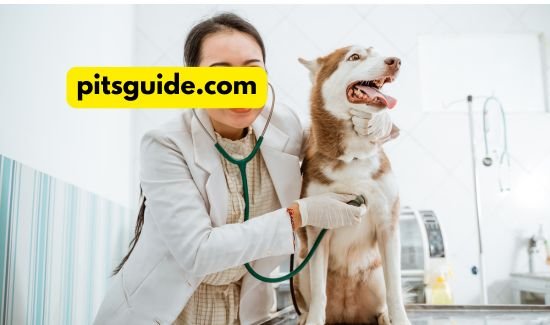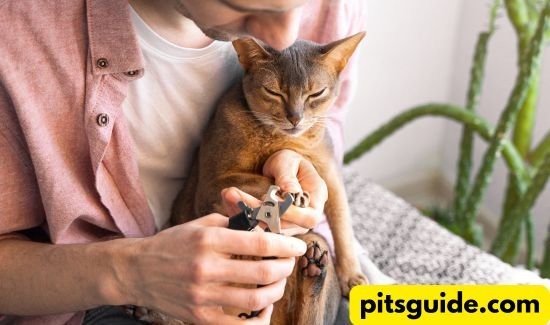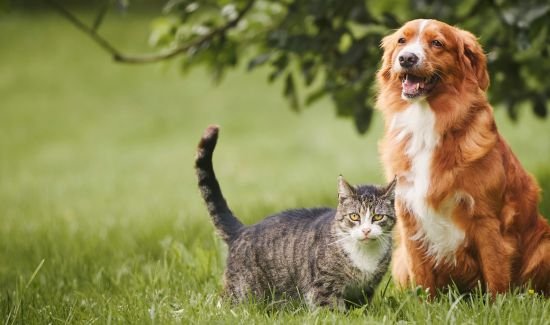Table of Contents
1. Introduction
1.1 The Joy of Being a Pet Parent
1.2 Importance of Health & Wellness for Pets
2. Key Takeaways
2.1 Comprehensive Care
2.2 The Role of Nutrition and Exercise
2.3 Sleep Patterns and Comfort
2.4 Benefits of Natural Supplements
2.5 Preventative Health Care
3. Understanding the Mental Health Benefits of Pet Companionship
3.1 The Science Behind Pet-Human Bonding
3.2 Stress Reduction and Anxiety Management
3.3 Social Connection Enhancement
4. Essential Nutrition and Dietary Wellness for Pets
4.1 Balanced Nutrition for Pets
4.2 Age-Appropriate Dietary Needs
5. Physical Activity and Exercise Requirements
5.1 Exercise Guidelines by Age and Breed
5.2 Mental Stimulation Through Play
5.3 Recommended Exercise Duration
6. Health & Wellness Through Natural Supplements
6.1 Importance of Natural Supplements
6.2 Popular Natural Supplements and Their Benefits
7. Sleep and Rest Patterns for Optimal Pet Health
7.1 Understanding Sleep Needs
7.2 Creating Comfortable Sleep Environments
7.3 Recognizing Sleep-Related Health Issues
8. Conclusion
8.1 A Holistic Approach to Pet Health
8.2 The Importance of Regular Vet Visits
8.3 Proactive Care for Longevity
9. FAQ
9.1 Benefits of Pet Wellness
9.2 How Pets Affect Mental Health
9.3 Key Considerations for Pet Nutrition
9.4 Exercise Needs for Pets
9.5 Benefits of Natural Supplements
9.6 Importance of Sleep for Pets
Introduction
Hidden Health & Wellness Boosters for Your Pets: A Complete Guide
Being a pet parent is a joy.Our lives are so much happier because of our furry pals. But, there’s more to caring for them than just food and walks. This guide will show you how to boost your pet’s health and happiness.
A poll by the American Psychiatric Association found 80% of pet owners feel better mentally.This demonstrates how important pets are to us.It’s key to focus on their health & wellness, holistic well-being, and preventive care. Let’s explore how to make sure your pets are happy and healthy.
Key Takeaways
- Mental, emotional, and physical wellness are all part of comprehensive pet care.
- Proper nutrition, exercise, and environmental enrichment are essential for pets’ overall health
- Understanding pets’ sleep patterns and creating comfortable sleep environments are crucial
- Natural supplements can provide additional support for pets’ health and wellness
- The foundation of preventative treatment is proactive health monitoring and routine veterinary examinations.
Understanding the Mental Health Benefits of Pet Companionship
Humans and pets have a deep bond. This bond brings many mental health benefits. Studies show pets make us feel better.
The Science Behind Pet-Human Bonding
Being around animals lowers stress hormones. It also boosts happy chemicals in our brain. This makes us feel less anxious and happier.
Stress Reduction and Anxiety Management
Pets are great friends for those with mental health issues. They help reduce stress and anxiety.Even nursing homes and hospitals benefit from therapy dogs.
Social Connection Enhancement
Meeting new people is facilitated by owning a pet. People who love pets often talk to each other.We feel happier and more connected as a result.
| Benefit | Statistic |
| Reduced Blood Pressure and Heart Rate | Studies have shown that interacting with animals lowers cortisol and blood pressure. |
| Improved Mood and Relaxation | Playing with a pet can increase levels of serotonin and dopamine, which can calm and relax. |
| Expanded Social Connections | Pet owners are often more likely to engage with others who share a similar affinity for their furry, feathered, or scaly friends. |
Pets are good for our mental health.They alleviate our tension and anxiety. They also help us meet new people. The bond between humans and pets is very powerful.
Pets offer a dependable source of emotional support and companionship, which is especially advantageous for people who are struggling with mental health issues.
Essential Nutrition and Dietary Wellness for Pets
For the sake of your pet’s health, make sure their diet is balanced. Select premium pet food that satisfies AAFCO requirements. This ensures a complete diet. Puppies and kittens need more calories and protein, while seniors need less.
Consult your veterinarian to choose the finest food for your pet. Adding fruits and veggies like parsnips can help. They add vitamins, antioxidants, and fiber.
Balanced Nutrition for Pets
A good diet for pets should have:
- Proteins: Help build tissues, support the immune system, and keep skin and coat healthy.
- Fats: Give energy, keep skin and coat healthy, and help absorb vitamins.
- Carbohydrates: Give energy and help with digestion.
- Vitamins and minerals are essential for healthy bones, eyesight, and immune system function.
By giving your pet the right food, you help them live healthy. This supports healthy living, preventive care, and a holistic approach to wellness.
For a pet to be healthy and happy, proper nourishment is essential.To create a customized feeding schedule that satisfies your pet’s particular nutritional requirements, it is imperative that you speak with your veterinarian.Physical Activity and Exercise Requirements
Keeping our pets active is key for their health. Whether you have a dog or a cat, the right exercise is important. It makes them happy and healthy.
Age-Appropriate Exercise Guidelines
Dogs need different amounts of exercise based on their age and breed. Adult dogs should get 30 minutes to two hours of play each dayYoung cats and kittens require roughly half an hour of playtime.
As pets get older, they might need less exercise. But, it’s still important to keep their minds sharp with toys and puzzles.
Mental Stimulation Through Play
Play is beneficial to mental and physical well-being.Games like fetch or hide-and-seek keep pets fit and strengthen your bond. Puzzle toys also challenge their minds and prevent boredom.
Exercise Duration Recommendations
The American Heart Association says pets need at least 150 minutes of activity weekly. This helps keep their hearts healthy. By doing this, you help your pet stay healthy and balance your life better.
By burning calories, regular exercise can help maintain weight loss or prevent excessive weight gain.
Health & Wellness Through Natural Supplements
Everyone wants their pets to be content and healthy. Natural supplements can help a lot. They offer a natural way to keep our pets healthy.
Before beginning any new supplement regimen, it is imperative that you speak with your veterinarian. They know what’s best for your pet. Some foods, like parsnips, can help keep your pet strong and clean.
- Parsnips help get rid of bad stuff that can cause cancer in pets.
- They are full of good stuff that helps your pet stay healthy.
Start with small amounts of new foods or supplements. This helps your pet’s body adjust. Natural healing can help your pet stay healthy and happy.
| Natural Supplement | Potential Health Benefits |
| Parsnips | Detoxification, immune support, antioxidant properties |
| Turmeric | Anti-inflammatory, joint health, cognitive function |
| Omega-3 fatty acids | Cardiovascular health, skin and coat maintenance, brain function |
Adopting natural vitamins for your pet might be a game-changer for their general health. By working closely with your veterinarian, you can unlock the hidden powers of these holistic healing remedies.”
Sleep and Rest Patterns for Optimal Pet Health
Pets need a lot of sleep to stay healthy. How much they sleep changes with their age and breed. Puppies can sleep for as much as 20 hours every day. Dogs that are adults sleep 12 to 14 hours.
Kittens sleep even more, up to 20 hours. Adult cats sleep about 16 hours.
Creating Comfortable Sleep Environments
It’s key to make your pets’ sleep places comfy and quiet. Make sure they are cool and not too bright or noisy. A bedtime routine helps them relax and sleep better.
Understanding Sleep Requirements by Age
Young pets, like puppies and kittens, sleep a lot. They grow fast and need lots of rest. As they get older, they sleep less. Knowing how much sleep your pet needs is important.
Signs of Sleep-Related Health Issues
Changes in sleep can mean health problems. For example, dogs with short muzzles might have sleep apnea. Taking your pet to the vet regularly helps catch these issues early.
Knowing about pets’ sleep helps us keep them healthy. It supports healthy living, lifestyle changes, and preventive care for their holistic well-being.
Conclusion
It takes a big plan to keep your pet happy and healthy. It’s not just about food or vet visits. It’s about their mind, body, and spirit too.
Things like mental support, good food, and exercise are very important. So are natural helpers and enough sleep. Each one helps your pet live better and longer.
Going to the vet regularly is key. It helps catch problems early. Grooming, dental care, and the right stuff also help a lot.
By focusing on all these areas, you make your pet’s life better.For a very long period, they will be content and healthy.
Being proactive with your pet’s health is very important. It makes your time together longer and more joyful. By meeting your pet’s needs, you make their life and yours better forever.
FAQ
What are the benefits of pet wellness for a pet’s health and longevity?
Pet wellness boosts a pet’s life and health. It includes mental health, good food, exercise, and sleep.Grooming and routine veterinary care are also essential.
How do pets positively impact mental health?
Pets help lower stress and heart rate. They make us feel happy and calm. They also help us meet new people and feel less lonely.
What are the key considerations for pet nutrition?
Choose high-quality food that meets AAFCO standards. Puppies and kittens need more food than older pets. Always ask a vet for the best diet plan.
How much exercise do pets need, and what are the benefits?
Dogs need 30 minutes to two hours of play each day. Cats need about 30 minutes. Exercise keeps pets happy and healthy.
What are the potential benefits of natural supplements for pet wellness?
Natural supplements can help pets stay healthy.However, always consult a veterinarian before administering them.Some foods, like parsnips, are good for pets too.
How much sleep do pets need, and what are the consequences of insufficient sleep?
Puppies sleep a lot, as do kittens. Adult pets need less sleep. Not enough sleep can make pets restless and stressed. It might also mean they’re sick.























